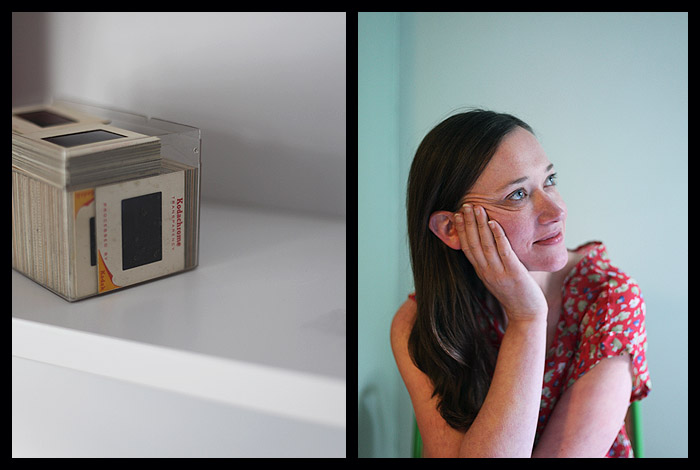
Keith said he’d visited every country in the world, apart from Portugal. He’d served in the navy. Home was a 1970s built estate in Alton, Hampshire. A world of BMXs and smooth tarmac for his four kids but for him a cul-de-sac of twitching curtains, responsibility and conformity. The sea was a refuge, from the navy he moved to work for the shipping firm Sea Containers and then to a pressured desk job with Sealink ferries. But he lost this job and began to drink heavily. These were Ally’s teenage years. The rebellious but thoughtful, open-minded and logical man evaporated. ‘It was almost like he went on strike with the world.’ In 1997 he died of his alcoholism. She found this set of his slides stored in a crystal Ferrero Rocher box, the chocolates long gone but the box, a reminder of another apology from Keith to his wife Anne. Occasionally Ally gets the transparencies out, she projects them onto a wall. The slide show, although it has no voice over, has helped narrate her dad’s life where conversations had been lost to his illness.
17 Feb 2013
They had nine children in all, two born in Jamaica and seven in England. Cheryl was their fourth child. Oscar and Sophie had settled in Ipswich knowing there’d be work. When Cheryl was 18 she met Ryan. He was already a father and within a year they had their own child. Ryan was still only 16. Their baby was christened ‘Kieren’ at Whitton Baptist church. A few years later Ryan and Cheryl split, Cheryl took on the lions share of caring for the children. Even though her time was divided, her bond with Kieren was always tight. When he left home for university she drove him down to London. They unpacked the car, Kieren’s stereo, his clothes, his books and the pots and pans that he’d have to learn to use. Finally Cheryl handed him the last box. Inside was an envelope of money she’d saved and, carefully pressed and folded, his ‘good luck’ christening gown. Nearly 10 years later Kieren still has it safe, hanging in his wardrobe.
10 Feb 2013
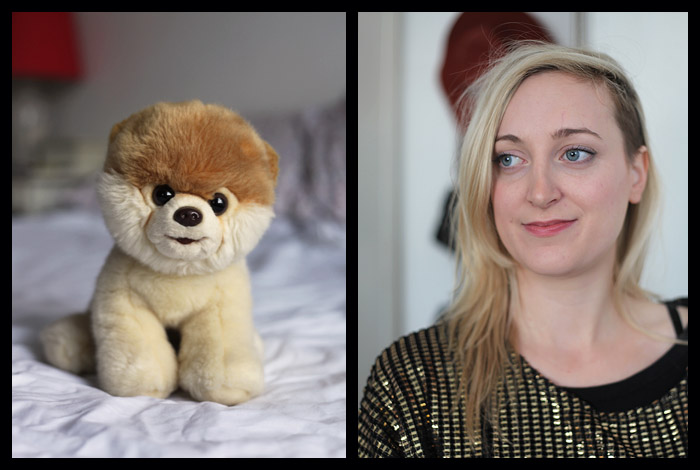
Kaz jumped from the window, it was a drop of fifty feet. The neighbours had pulled mattresses into the street to break her fall but hours later the doctor confirmed that her back was broken. Her friend moved out of the flat leaving it’s charred contents and Kaz spent the next three weeks in hospital. After surgery Kaz’s wound failed to heal, she’d developed an infection, MRSA, the R of which – ‘resistant’ meant her body didn’t respond to common antibiotics. It was a full year before she recovered, and the metal rods, implanted to support her back, were removed. A new greed for life had Kaz learning to surf. Nothing could temper this. One morning, rushing to get to the beach, she tripped and hit her head. An inch long gash opened up above her left eye. Kaz was in hospital again. Doctors told her the wound was to be kept dry so she was unable to surf. As she languished at home she picked up a friends book ‘Boo, the Life of the World’s Cutest Dog’. Kaz developed a Boo obsession, signing up to his facebook updates. Boo’s silliness was the perfect antidote to her rough year. This toy was a get well present from her boyfriend Jack – and an ill-conceived attempt to dampen her Boo fixation.
03 Feb 2013
The first time they met it was to say goodbye. Mutual friends were moving out of London. They talked all night, only stopping to make another Lemsip, Sue had a heavy cold. In the morning they went out for breakfast, already settling into the ritual of dividing the Sunday papers with Ben temporarily distracted by the sports pages. Two years later they moved in together. This was the first piece of furniture they bought for their new place. Ben found it on Essex Road, the shop keeper said it was £30. Ben carefully disguised his excitement and handed over the money. The table was delivered as part of the deal. Today, ten years on, its beautiful elm top, already marked from a previous life, is variously dusted with flour for pizza making, scattered with their son Riley’s pens and pencils and hidden under the bulk of the Sunday papers.
27 Jan 2013
Evelin first used these papers in art class as a child. She grew up in Soviet Estonia. Years later she found them in a drawer and now, after moving to London to study for an MA, she is using them again in her work. The transfer paper is used to create a template for her cross stitching. In her work she translates the coloured dots that make up the half-tone screens used in printing into stitches. Any variation in the degree of saturation of the cyan, magenta, yellow or black dots is reflected in the amount of thread she uses.
20 Jan 2013
Both of Karl’s grandparents fled before the Russians had encroached on Latvian soil. Karl’s grandmother’s family had flourished in Latvia. They hid their valuables, packing them into a box then burying it in the garden. Their house was later repossessed and the building was extended, covering the site. The box still lies there, entombed under brick. Karl’s grandparents finally settled in Loughborough where Albert worked as an engineer on the construction of the M1. Karl remembers the familiar ritual of Albert emptying his pockets of grandfatherly kit, a tape measure, a pocket knife – retrieved to peel fruit. He’d offer Karl a perfect white moon of apple on the point of the blade. When Albert died in 1988, Karl found the tape measure in his grandfather’s bureau. He uses it to this day.
13 Jan 2013

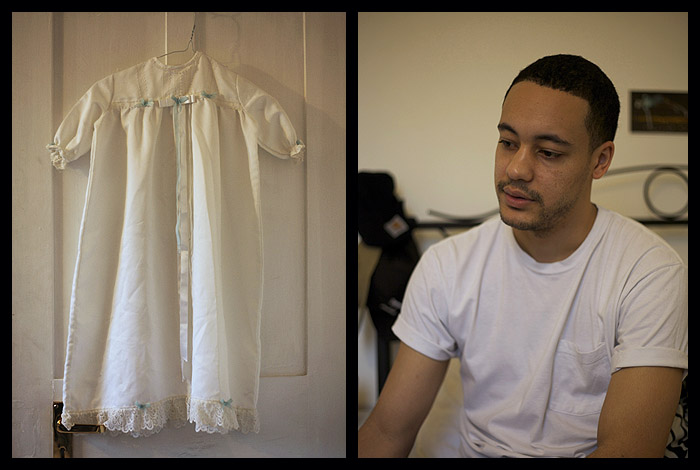

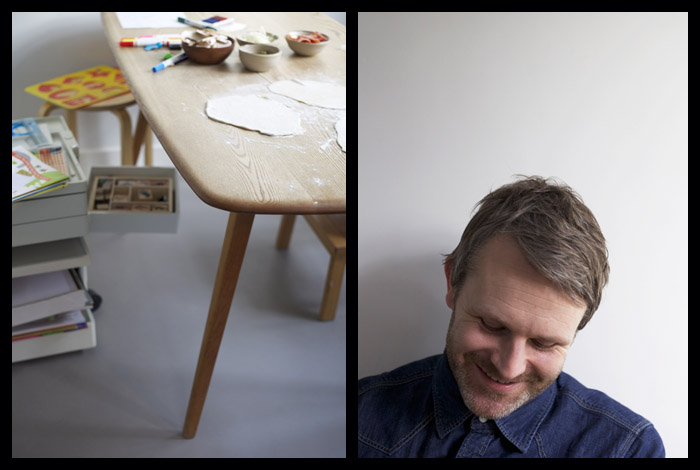
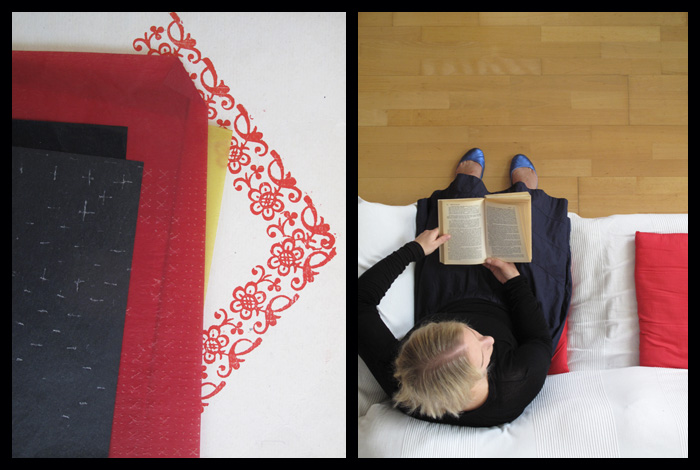
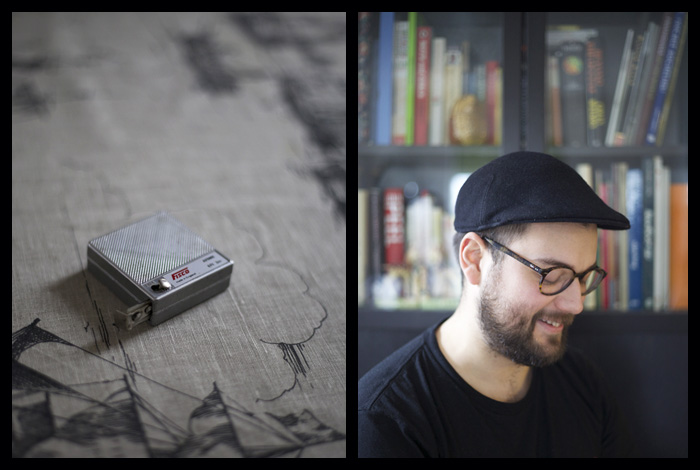
 Subscribe to RSS
Subscribe to RSS Follow us on Twitter
Follow us on Twitter